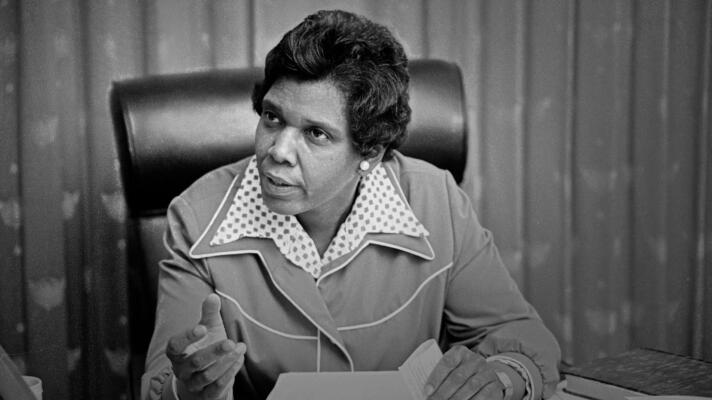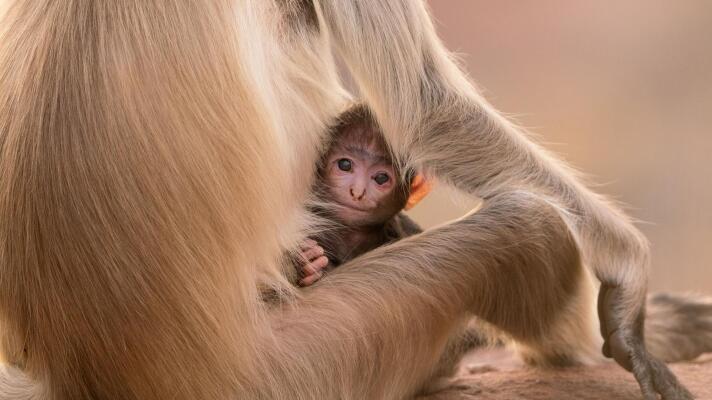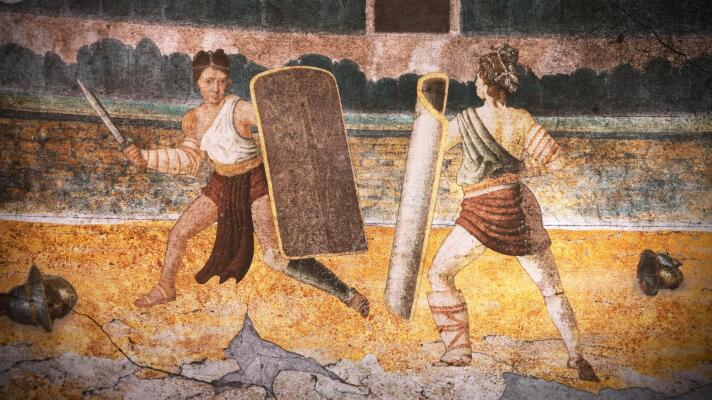Extras
Barbara Jordan’s voice shook the nation. Discover her story in The Inquisitor.
Preview:
S27
E7
|
0:30
Discover the extraordinary life of poet, philosopher and music visionary Sun Ra.
Preview:
S40
E2
|
2:02
Librarians across the U.S. examine how the review of library materials is impacting communities.
Preview:
S27
E6
|
0:30
A professor seeks to prove Arthurian legends have roots in actual British history.
Preview:
S23
E4
|
0:32
Animal parents must balance risk and reward to raise their young in grasslands.
Preview:
S44
E6
|
0:30
Experts search for evidence that female gladiators once existed in Ancient Rome.
Preview:
S23
E3
|
0:32
Elie Wiesel vowed to always speak up whenever people were enduring suffering and humiliation.
Clip:
S40
E1
|
2:21
Before meeting his wife Marion, Elie Wiesel "shunned love" and didn't see himself having children.
Clip:
S40
E1
|
2:40
Elie Wiesel reunited with his sister in France.
Clip:
S40
E1
|
1:10
In "Night," Elie Wiesel recounts a memory of witnessing three victims being hung.
Clip:
S40
E1
|
1:56
Latest Episodes
All
-
All
-
Be Smart Season 13
-
Be Smart Season 12
-
Be Smart Season 11
-
Be Smart Season 10
-
Be Smart Season 9
-
Be Smart Season 8
-
Be Smart Season 7
-
Be Smart Season 6
-
Be Smart Season 5
-
Be Smart Season 4
-
Be Smart Season 3
-
Be Smart Season 2
-
Be Smart Season 1
Here is the REAL science about "alpha males."
Episode:
S13
E15
|
20:05
How did the mass extinction of the dinosaurs play out, moment by moment?
Episode:
S13
E14
|
22:36
Think traits like eye color or tongue-rolling are simple genetics? Think again.
Episode:
S13
E13
|
12:37
Why is the Martian sky red by day… but blue at sunset?
Episode:
S13
E12
|
11:08
Is autism really on the rise—or are we just recognizing it more?
Episode:
S13
E11
|
36:47
Seedless fruits are delicious, convenient… and completely unnatural.
Episode:
S13
E10
|
14:51
What does randomness really mean? And why your digital life depend on it?
Episode:
S13
E9
|
21:13
Why do we have different blood types? And why do we have blood at all?
Episode:
S13
E8
|
16:20
How did dinosaurs become birds—and what good is half a wing?
Episode:
S13
E7
|
16:18
Just how big would a telescope need to be to actually see an alien world in detail?
Episode:
S13
E6
|
16:00






















